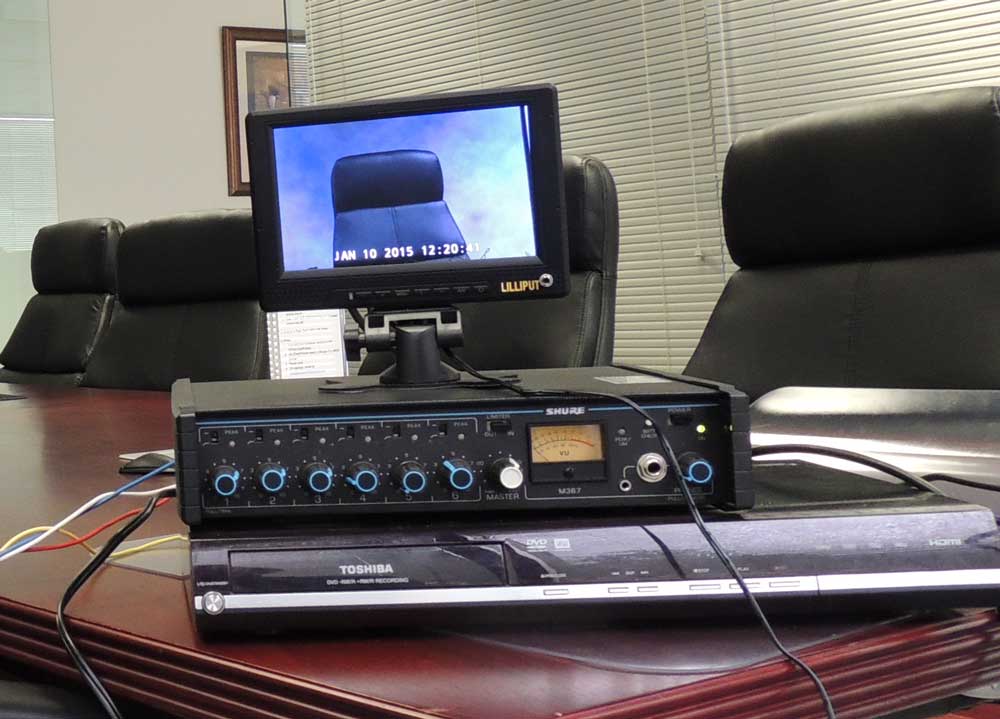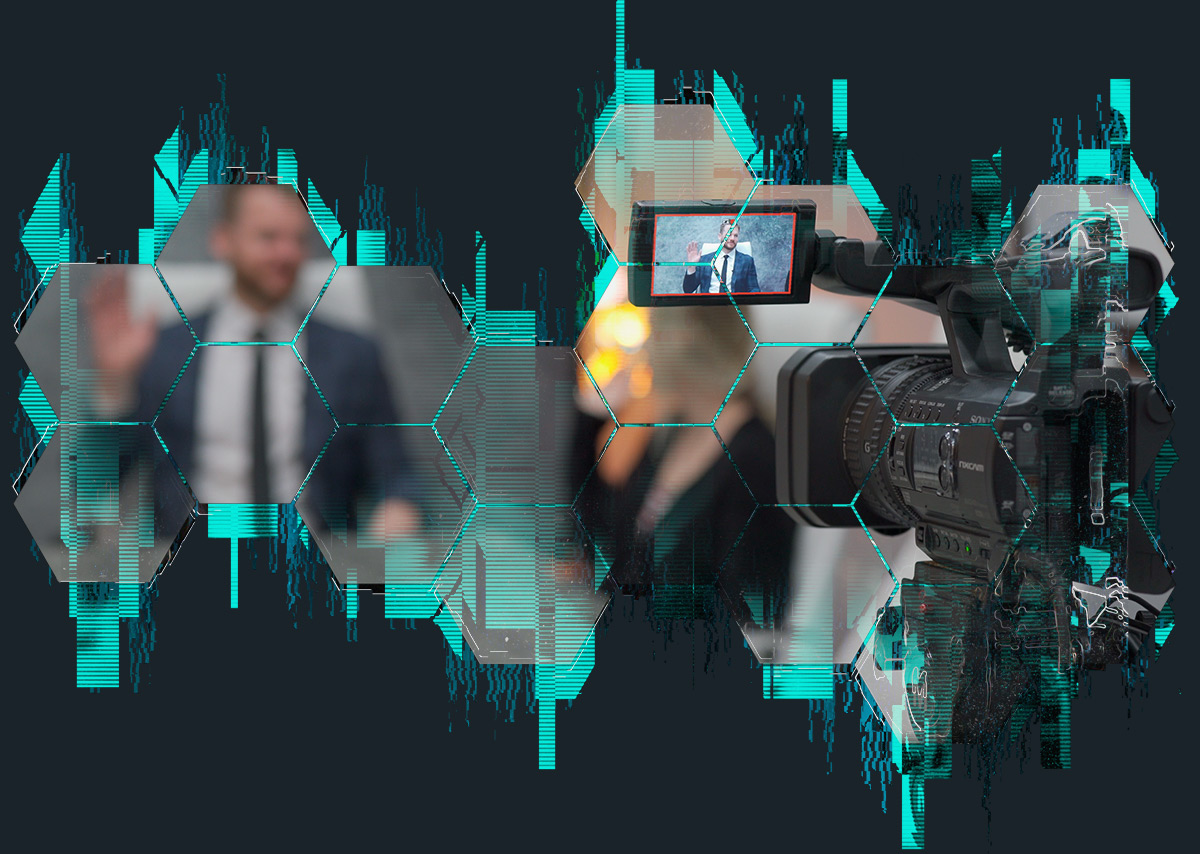The Value of Legal Video Clip Depositions in Modern Legal Services: What You Ought to Know
Lawful video depositions have actually come to be important in today's legal landscape. They offer a multidimensional sight of witness testaments that typical records merely can not match. By capturing both spoken and non-verbal communication, these depositions improve the total understanding of a witness's reliability. However, the efficiency of video depositions depends upon different elements, consisting of conformity with lawful requirements and ideal techniques (legal video depositions). Exploring these aspects reveals their true importance in modern-day legal solutions
What Are Lawful Video Depositions?
Lawful video depositions function as an important device in the lawsuits procedure. They involve taping witness testaments in a video style, recording both non-verbal and spoken communication. This technique permits attorneys to record the temperament, expressions, and reactions of witnesses, offering a richer context for the testament. Typically carried out in a regulated environment, these depositions are led by attorneys that ask inquiries while a stenotype reporter documents the discussion. The resulting video clip can be vital for trial prep work, as it allows legal representatives to analyze the integrity of witnesses and improve their strategies. Furthermore, legal video depositions can be made use of in various legal contexts, varying from civil conflicts to criminal situations. The auditory and visual components of video depositions improve the presentation of evidence, making it a crucial element in the modern-day lawful landscape. Overall, they contribute considerably to the efficiency and effectiveness of legal proceedings.

Advantages of Video Depositions Over Standard Techniques
Video depositions provide various advantages compared to standard techniques of taking witness statements. One considerable benefit is the ability to capture both aesthetic and audio components, supplying a much more extensive record of the witness's statements. This dual layout improves clearness and allows legal specialists to reference details subtleties throughout trial preparation. In addition, video clip depositions assist in remote participation, making it easier for witnesses that might be unavailable for in-person looks due to geographical constraints or health issues.Moreover, video depositions can quicken the general deposition procedure, minimizing the time and prices related to traveling and logistics. They also boost availability, as tape-recorded depositions can be quickly shared amongst lawful teams and referenced any time. This ease adds to better instance administration and preparation. Generally, video depositions stand for a modern, effective approach to gathering witness statements, aligning with the advancing requirements of the legal profession.
The Duty of Body Language and Tone in Testimonies

In legal video clip depositions, body language and tone play crucial duties in conveying a witness's trustworthiness and dependability. Nonverbal signs can give understandings into a witness's mood, affecting exactly how their testament is regarded. Comprehending the impact of these components is vital for lawyers and jurors alike when examining the integrity of a testimony.
Nonverbal Communication Insights
While verbal communication is commonly emphasized in legal statements, nonverbal hints such as body movement and tone play an essential role in conveying reputation and feeling. Viewers of depositions may note that a witness's position, motions, and facial expressions can considerably affect perceptions of reliability. Regular eye call may indicate self-confidence, while staying clear of stare might suggest deceit or pain. The tone of voice-- its speed, volume, and pitch-- can present feelings of sincerity or unpredictability. Lawful specialists need to be attuned to these nonverbal signals, as they often give important context that complements talked words. Recognizing these nuances can improve the effectiveness of depositions and affect the result of legal process.
Emotional Tone Impact
The emotional tone communicated during legal testaments significantly impacts just how a witness is viewed. Body movement, vocal inflections, and face expressions play essential functions fit the narrative of a testament. A witness showing confidence via stable eye contact and a calm tone can infuse a sense of reliability and interaction. On the other hand, indications of anxiety, such as fidgeting or an unstable voice, might result in suspicion regarding their account. The nuances of emotional expression can affect the interpretation of facts, making it necessary for lawful professionals to acknowledge these cues. In video clip depositions, the acoustic and aesthetic components combine, highlighting the relevance of emotional tone in conveying sincerity and truthfulness within the lawful process.
Trustworthiness and Trustworthiness
An essential factor in establishing integrity and dependability throughout testimonies hinges on the witness's body language and intonation. Viewers often depend on non-verbal hints-- such as eye get in touch with, stance, and motions-- to analyze a witness's genuineness. A witness that maintains eye contact and displays open body language may be viewed as even more dependable and truthful than one that stays clear of eye contact or appears shut off. In addition, tone of voice plays an important function; a consistent, tranquil tone can enhance the reliability of the testimony, while changes in pitch or volume may raise questions. Ultimately, the combination of body movement and vocal tone check my blog substantially affects just how a witness's statements are obtained and interpreted in a lawful context.
Best Practices for Conducting Video Depositions
Carrying out video clip depositions calls for cautious preparation and implementation to ensure a effective and clear discussion of testimony. Initially, it is very important to choose a quiet, well-lit area to minimize distractions and secure optimum video clip quality. The tools ought to be tested beforehand, consisting of electronic cameras, microphones, and lighting, to avoid technological concerns throughout the deposition.Next, parties entailed need to examine the layout and procedures in advance, seeing to it that everybody recognizes their functions. The deponent should be informed on the process, including just how to respond clearly and concisely.Additionally, keeping a specialist temperament throughout the session is crucial. This includes avoiding talking over each other and verifying that all questions are guided appropriately. Lastly, it is critical to record the deposition in a layout that permits for easy playback and evaluation, preserving the integrity of the testament for future usage.
Lawful Factors To Consider and Compliance Issues
How do lawful factors to consider and conformity issues impact the performance of video depositions? Lawyers need to browse a complicated landscape of guidelines, making certain that video clip depositions follow administrative regulations and criteria. Conformity with regulations concerning personal privacy, permission, and tape-recording techniques is vital. Getting specific approval from all events entailed is required to avoid lawful repercussions.Additionally, the admissibility of video clip evidence in court can hinge on conformity with step-by-step needs. Ensuring that the equipment utilized satisfies technical standards is additionally crucial, as low quality can undermine the deposition's reliability.Moreover, attorneys should recognize any type of certain state regulations that regulate video depositions, as these can differ significantly. Failure to resolve these considerations can not only jeopardize the stability of the deposition but additionally affect the overall situation strategy, eventually affecting the customer's legal results.
Exactly How Video Clip Depositions Effect Court Understanding
While video clip depositions can serve as powerful tools in lawful proceedings, their impact on court assumption is substantial. The aesthetic and auditory elements of video clip recordings give jurors with a much more thorough understanding of witness attitude, integrity, and psychological reactions. This multimedia technique can pop over to these guys boost the jurors' capability to evaluate the reliability of testament compared to conventional text-based transcripts.Moreover, video depositions enable jurors to observe body movement, tone of voice, and faces, all of which can impact their interpretation of the witness's declarations. The existence of a witness on display can humanize them, promoting compassion and link, which might persuade jurors' point of views. On the other hand, a witness that shows up unreliable or incredibly elusive on video may result in adverse assumptions that influence a jury's decision. Eventually, the vibrant nature of video clip depositions plays an essential function fit just how jurors interpret evidence and reach their decisions.
The Future of Video Clip Depositions in Legal Technique
As developments in modern technology remain to reshape the lawful landscape, the future of video clip depositions is positioned for significant advancement. Technologies such as artificial intelligence, online fact, and improved video clip conferencing tools are anticipated to streamline the deposition procedure and boost access. Lawyers might use AI-driven analytics to assess witness trustworthiness and situation stamina much more Click Here effectively.Moreover, the combination of virtual reality can permit courts to experience immersive simulations of depositions, supplying deeper context and understanding. In addition, the fad towards remote depositions is most likely to continue, using greater flexibility for lawyers and customers alike.As remote job comes to be increasingly stabilized, video clip depositions will likely become standard technique, minimizing expenses and time constraints linked with standard techniques. Overall, these technical improvements assure to boost the effectiveness, efficiency, and availability of video depositions in lawful method, inevitably changing how attorneys plan for trial.
Often Asked Questions
Just How Much Do Legal Video Depositions Typically Cost?

Can Video Clip Depositions Be Used in Any Kind Of Kind Of Situation?
Video clip depositions can be used in numerous types of instances, including civil, criminal, and household regulation. Their versatility permits attorneys to present witness testaments efficiently, adjusting to the specific needs of various lawful scenarios.
What Equipment Is Needed for a Video Clip Deposition?
To perform a video deposition, vital tools includes a premium electronic camera, microphone, lighting, and a trustworthy recording tool. Additionally, a computer with editing and enhancing software application may be required for post-production and formatting the last video.
The length of time Does a Typical Video Clip Deposition Last?
A normal video clip deposition lasts in between two to 4 hours, relying on the complexity of the instance and the variety of questions posed. Extended sessions may occur, however breaks are normally included for participant convenience.

Are Video Depositions Admissible in Court?
Video depositions are normally acceptable in court, provided they adhere to legal standards and rules of proof. Their usage boosts clearness and protects witness statement, aiding in the judicial process during tests and hearings. Lawful video depositions have become important in today's legal landscape. Additionally, legal video clip depositions can be made use of in different legal contexts, ranging from civil disputes to criminal instances. In addition, video depositions facilitate remote engagement, making it much easier for witnesses who might be not available for in-person looks due to geographical restraints or health issues.Moreover, video clip depositions can quicken the general deposition process, reducing the time and prices connected with travel and logistics. Ensuring that the tools made use of satisfies technical requirements is likewise crucial, as poor top quality can weaken the deposition's reliability.Moreover, lawyers should be mindful of any kind of certain state legislations that regulate video clip depositions, as these can differ considerably. In addition, the trend toward remote depositions is most likely to persist, using greater adaptability for clients and lawyers alike.As remote work comes to be progressively stabilized, video depositions will likely come to be conventional technique, decreasing prices and time restrictions linked with conventional approaches.
Comments on “Why legal video depositions are transforming modern courtroom strategies”